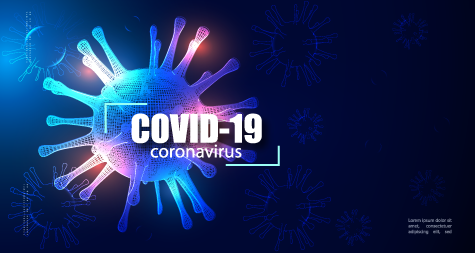By Barbara Greenwood Dufour
The internet is a popular resource for Canadians looking for health information. During the COVID-19 pandemic, this is no less so. However, the risks of encountering incorrect information about COVID-19 may be greater. Because it’s a new disease, we know less about it than we do about other illnesses. And in this information void, misinformation can thrive.
Health misinformation spreads quickly on the internet, and so can its negative consequences. Stories about unproven COVID-19 treatments can lead people to misuse drugs and other therapies, inadvertently harming themselves or others. False narratives about the pandemic, such as conspiracy theories, can cause undue panic. And because misinformation is often presented in uniquely persuasive ways, it can erode people’s trust in the credible sources of information it contradicts.
WHERE TO FIND CREDIBLE INFORMATION ABOUT COVID-19 ON THE INTERNET
There are several reliable websites where you can find credible health information. One is the CADTH COVID-19 web portal — covid.cadth.ca. CADTH is an independent, evidence-based agency that finds, assesses, and summarizes the research on drugs, medical devices, and procedures. In response to the COVID-19 pandemic, CADTH launched this web portal to provide access to trustworthy information about COVID-19. Here you can find a growing number of freely accessible CADTH evidence reviews as well as web-based resources from other trusted organizations.
CADTH recently posted the following reports on COVID-19, and these are just a few highlights from the web portal. Please note that any key findings presented here are accurate at the time of writing this article. The information on the site is being updated daily to reflect the rapidly changing and growing state of the international scientific evidence related to COVID-19:
- a review of antibody-based serological tests for COVID-19 to assess how well they perform and what their clinical role might be (which is unclear)
- a review of the antiviral drug remdesivir for patients with COVID-19 (which, is not approved in Canada and access to it is limited to clinical trials)
- an update of its review of chloroquine and hydroxychloroquine for COVID-19 (there is uncertainty regarding the clinical benefit of using these drug regimens for COVID-19)
- a briefing note on the use of contact tracing apps as a public health tool to contain the spread of COVID-19.
HOW TO ASSESS OTHER WEB-BASED INFORMATION THAT YOU FIND
Even if you get your COVID-19-related information only from trustworthy websites, it’s nearly impossible to avoid coming across content from questionable sources. There are many false or misleading claims online that, for example, certain herbal remedies, vitamins, household products, or medicines can cure or protect against COVID-19. Whether you are finding information yourself or it’s being shared with you by a family member, a colleague, or a patient, there are things you can look for to assess the credibility of the content.
A few years ago, CADTH developed its Evaluating the Credibility of Health Websites: Can You Trust Dr. Google? handout. This handout provides tips and resources to help anyone critically appraise health information they find on the internet. It includes a list of criteria to look for as well as red flags that could indicate a website is providing unreliable information. It was developed for a broad audience — all health care decision-makers — from members of the public to clinicians. So, it might be useful to health care providers who are having discussions with patients about COVID-19 information found on the internet.
More recently, CADTH produced a new handout that incorporates elements of the earlier one. This handout — What You Should Know About Drug Treatments for COVID-19 — is intended for a lay audience, and it explains the risks of using unproven COVID-19 drug treatments. It was developed to help the public see through the hype about COVID-19, offer tips on how to assess the reliability of health information found on the internet, and provide a list of reliable websites that feature plain-language information on COVID-19.
CADTH is committed to providing Canada’s health care decision-makers with reliable information during this challenging and uncertain time. Subscribe to the CADTH e-alert system — at cadth.ca/subscribe — to receive the CADTH Weekly COVID-19 Update, which lists the latest content that’s been posted on the CADTH COVID-19 web portal. All the documents posted on the portal, including those referred to in this article, are freely available.
Publicly funded organizations responsible for health service delivery, clinical society stakeholders, and Canada’s ministries and departments of health can ask CADTH for a review of new COVID-19-related evidence by submitting a request at covid.cadth.ca/submit-a-request or by contacting their CADTH Liaison Officer.
Visit cadth.ca to learn more about CADTH and follow us on Twitter @CADTH_ACMTS.
Barbara Greenwood Dufour is a knowledge mobilization officer at CADTH.


